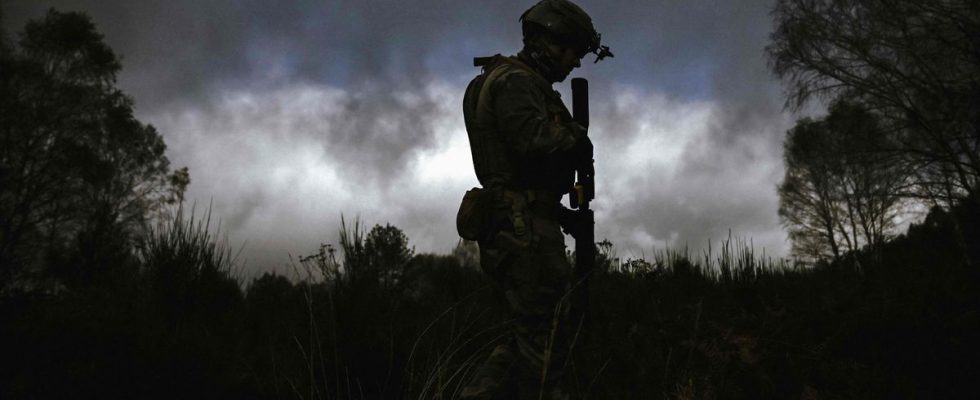The French army is doubly bereaved. Clément Elard and Mathieu Gayot have two things in common. They are soldiers and died respectively on November 9 and 11 during training, during a “hardening march” in Tahiti and in a military center near Pau. Jean-Pierre Woignier knows these situations intimately. His son François died in 2017 in similar circumstances*.
Since then, the retiree has been fighting for his grandson, aged 6 at the time of the tragedy, and his daughter-in-law. He founded in 2017 the association Les Oubliés de la Nation who fights to obtain legal and symbolic recognition of French soldiers who died in training. Around fifty families joined his fight.
When French soldiers die in training, does this echo your own story?
My first reaction to these tragedies? I’m crying. It hurts my heart and it revives my wounds. I have the reaction of a father who thinks of parents and families. I want to tell them: fight for your status. Even if, deep down, I would like immediate recognition, without a fight.
You have been fighting for years for the recognition of the status “died in the service of the Nation” (established by the State in 2012) for soldiers who died in training. Where are your steps? Do you feel like you are being heard?
A bill proposed by a senator could not be examined. After the creation of the “died for the service of the Nation” status, a decree dating from 2016 detailed the possibilities of obtaining this mention with two conditions: death after intentional shooting, for example in a case of terrorism, or a death in exceptional circumstances. Which leaves a large part to the interpretation made by the Ministry of the Armed Forces. Some soldiers obtain the mention, others do not, it is unfair, especially since it opens legal rights, such as the rank of ward of the Nation for the children and a survivor’s pension paid in full for the wife or the husband, compared to 50% in ordinary times. We did a petitionwritten to the President of the Republic, to the ministries, the fight continues.
But, since Covid, a “died for the service of the Republic” status has been established, and military personnel are eligible for it.
This is not enough. Initially, it was a law intended to pay tribute to caregivers who died during the pandemic. But the comparison with the military does not hold. A soldier commits to kill or be killed. Our association calls for fairness between a soldier who dies in training and another who dies in the field. Of the fifty families we support, some have tiredly accepted the mention “died in the service of the Republic”, even if that does not provide the same rights. In a letter dating from 2022, the Head of State indicated that the Ministry of the Armed Forces was, at his request, carrying out a reflection on the dead and injured. We are still waiting for a response.
How do the families of soldiers and their former comrades deal with this situation?
The military fights for symbols**. When you don’t feel considered, it weighs on you. For brothers in arms, a death in training is a tragedy. When there is no recognition of this death, it happens that some non-commissioned officers ask to step down or resign. To take the example of my son, he took part in fifteen “opex” (external military operations), obtained three citations in the order of the regiment. It is as if his entire past as a soldier had been erased by the non-recognition of this status. The fight is legal, but also symbolic. Parents want to see a place created where there could be some form of recognition for this commitment. Because they died by accident, because they died in training, would we forget their past? This treatment devalues the commitment of the military. Let’s not look at the circumstances in which the soldier died, but at his journey, the sacrifices made, etc.
Should the safety of training in the army be questioned?
I am not a soldier, I do not consider myself legitimate to answer this question. Training is often carried out with high intensity and danger, while adapting to the future conditions of an “opex”. Should training as part of preparation for an external operation be considered part of the mission? I’m wondering.
* Chief Warrant Officer François Woignier died on August 2, 2017 during preparation for an external operation at the Caylus military camp (Tarn-et-Garonne). The armored vehicle in which he was sitting overturned after the driver lost control. He belonged to the 3rd RPIMA (marine infantry parachute regiment).
** Obtaining the mention “died for the service of the Nation” also allows one to see one’s name inscribed on memorial sites.

